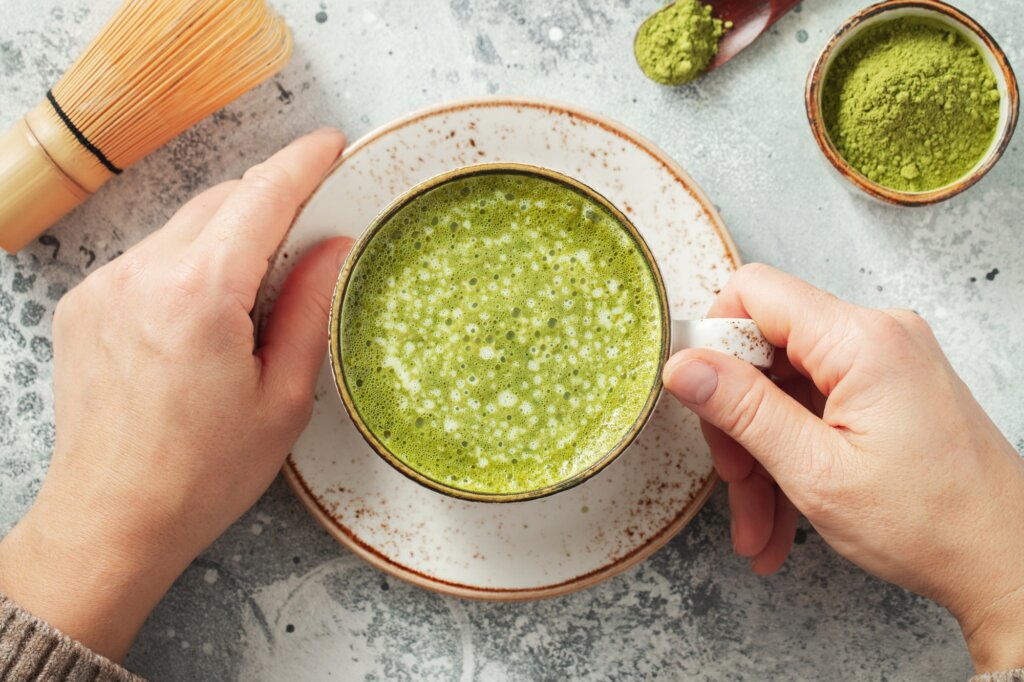Every morning begins with a simple choice: coffee’s bold kick or matcha’s serene lift. In 2025, this choice carries more weight—reflecting shifts in lifestyle, mental wellbeing, and wellness-informed routines. This comprehensive guide dives into the caffeine showdown, exploring science, culture, user lifestyles, and mindful rituals to help you align your cup with your values and energy needs.
1. Origins & Ritual: Tradition Versus Trend
Coffee: A Global Heritage in a Cup
Coffee has been at the heart of social exchange since 15th-century Middle Eastern coffeehouses offered communal space for conversation, debate, and focus. Today, artisanal roasteries bring lineage and terroir together—highlighting single-origin beans, sustainable sourcing, and roast profile storytelling. Each brew—from pour-over to espresso—offers sensory complexity and personal ritual, yet convenience often truncates this by way of instant or pod-based shortcuts.
Matcha: Ceremony in Every Sip
Matcha has roots dating back over 800 years to Japanese Zen Buddhist tea ceremonies. Preparing ceremonial-grade matcha involves sifting bright green powder, whisking in a chawan (tea bowl), and observing the frothy foam—the entire process is a micro-meditation. This intentional ritual shapes not just flavor, but mood. Using matcha daily means embracing a moment that whispers calm before caffeine.
2. Caffeine Levels—Balanced Climb vs. Rapid Spike
It’s easy to think coffee always wins on caffeine—but matcha keeps pace:
- A standard 225 ml cup of matcha contains 70 mg of caffeine on average.
- An 8oz cup of coffee ranges from 95–200 mg, depending on bean and brew.
However, the difference lies in delivery: coffee releases caffeine quickly, reaching bloodstream peak in as little as 15 minutes. Matcha’s caffeine, bound with L-theanine, is absorbed gradually, offering a smoother, longer-lasting lift.
Gen Z is reducing traditional caffeine intake: matcha sales rose 67% year-over-year, signaling a shift towards clean energy with fewer jitters.
3. L-Theanine: Matcha’s Zen Component
What differentiates matcha is its high L-theanine content—an amino acid almost absent in coffee.
- Matched studies show 72.5 mg of caffeine paired with 50 mg of theanine deliver balanced energy and improved focus under stress, unlike caffeine alone.
- Theanine encourages alpha brain waves linked to relaxed alertness, lowers stress markers, and enhances creativity .
This combination creates a cognitive performance edge under pressure—coffee, lacking theanine, emphasizes intensity but may overdrive the system.
4. Antioxidants & Health Benefits at a Glance
Matcha: Green Catechin Power
- High in EGCG, shown to improve metabolic function, reduce inflammation, enhance lipid and glucose metabolism in mice.
- Real-world research shows matcha improves attention, memory, and stress management .
- A major PLOS One trial with older adults showed matcha improved emotional perception and sleep quality over 12 months.
Coffee: A Polyphenol Fountain
- Loaded with chlorogenic acid, coffee consumption is linked to reduced type 2 diabetes, Parkinson’s, and liver disease.
- Meta-analysis shows 3–4 cups/day correlates with 16% lower all-cause mortality and 21% reduced cardiovascular death risk .
Despite differences, both drinks deliver wellness advantages—but matcha leans toward metabolic and cognitive balance, while coffee optimizes alertness and hydration.
5. The Energy Experience: Sprint vs. Marathon
Coffee
- The rapid caffeine absorption offers high peaks in alertness—but is followed by dips
- Around 20% of users report jitters or crashes after coffee.
Matcha
- Later 70+ mg caffeine extraction offers hours of sustained energy
- L-theanine moderates caffeine peaks and troughs
- Users report consistent mood, productivity, and lower stress.
Matcha offers more consistency—coffee offers powerful spikes, but can wear the system down faster.
6. Cognitive & Physical Performance
Clinical trials show matcha enhances memory, attention, and stress tolerance, especially for prolonged tasks . Coffee shines for short-term alertness and reaction speed—ideal for workouts and one-off performance peaks.
For knowledge workers or creative projects requiring sustained focus, matcha provides a smoother brain boost. Coffee remains king in athletic endurance and quick energy demands.
7. Digestive Comfort & Acidity
Matcha
- Higher pH than coffee, presenting less acid reflux and stomach upset
- Many with sensitive stomachs report no discomfort.
Coffee
- Can aggravate GERD, IBS, or sensitive digestion due to chlorogenic acids and compounds that stimulate acid production
For individuals seeking comfort-first routines, matcha’s gentleness makes it increasingly preferred.
8. Rituals: Mindful Cup vs. Grab-and-Go
Coffee rituals are widely practiced—yet often metric of efficiency rather than awareness.
Matcha rituals enforce a deliberate pause: sifting powder, whisking to creamy foam, slow sipping—all stepping into Mindful Ritual 101. This single-moment ritual may enhance mindfulness, zone-in ability, and stress reduction.
9. Ethical & Environmental Impact
Matcha
- Shade-grown and harvested specifically—often traceable to verdant farms in Japan
- Organic and fair-trade options promote small-scale agriculture.
Coffee
- Represents large-scale monoculture; though fair-trade and shade-grown certifications exist, issues around deforestation and labor persist.
Ethically conscious consumers increasingly favour traceable matcha—highlighting its calm and collectible provenance.
10. Global Trends & Audience Search Behavior
Interest in “coffee vs matcha” spiked 50% in recent years, revealing its shift from niche to mainstream.
#MatchaLatte and #MatchaSmoothie hashtags garners hundreds of millions of views on TikTok and Instagram—further evidence of social and visual popularity.
Matcha is no longer fringe—it’s racing toward every kitchen, café counter, and wellness blog in 2025.
11. Crafting Your Routine: A User’s Roadmap
Coffee Path
- For morning efficiency or gym sessions
- Choose single-origin, sustainable beans
- Try light roasts or cold brew for lower acidity
- Monitor intake: avoid after 3 PM due to caffeine’s 5-hour half-life.
Matcha Path
- For days requiring prolonged focus or intentional calm
- Start with ceremonial matcha, 1 tsp (2 g) per cup
- Whisk with 80°C water, foam gently for 60 seconds
- Pair with notebook, yoga, or morning journaling
Alternating Combo
- Use coffee for bumps (e.g., gym, early meetings), matcha for long days and reflective moments
- Keep under 400 mg caffeine daily.
12. Separate Practices to Enhance Your Brew
Elevate your caffeine routine into a mindful ritual with these habits:
Pre-Brew Breath
Before coffee or matcha, sit with the cup and take 3 deep breaths—intention before activation.
Sensory Savor
As hot water steams and aroma rises, pause to inhale before sipping.
Hydration Ritual
Pair your brew with a glass of water to offset diuretic effects.
Mid-Day Move Breaks
Every hour, stand, stretch, or walk for 3 minutes—ground your energy for clearer focus.
Gratitude End
Once the cup’s done, pause to appreciate the warmth and care—inspiring calm and closure.
These small rituals amplify physical benefits and elevate your morning brew to a mindful moment.
13. Who Benefits Most?
| Your Priority | Matcha | Coffee |
|---|---|---|
| Calm, sustained energy | ✅ Ideal | ⚠️ Prone to crash |
| Clear cognition, studious focus | ✅ Stands out | ☑ Quick alertness, short-term |
| Digestive comfort | ✅ Low acidity | ⚠ May provoke acid symptoms |
| Athletic pre-workout boost | ⚠ Mild | ✅ Strong impact |
| Ritual & emotional alignment | ✅ High mind/body connection | ☑ Sensory, less mindful |
| Easy morning grab & go | ⚠ Needs prep | ✅ Convenient |
14. Nezt Supports Your Brew Rituals
At Nezt, we believe routines shape mindset:
- Thoughtful kitchens with clean nooks to whisk your matcha.
- Provision of bamboo whisks, measuring spoons, and guide blurbs.
- Natural light setups perfect for coffee pour-overs or mindful tea practices.
Our spaces nurture habit-driven living so your morning cup becomes a moment that grounds your day.
15. Final Thoughts: A Cup for Every Purpose
There’s no winner in matcha vs coffee—it’s about intention:
- Choose matcha if you need calm energy, mindful clarity, gut-friendly routine.
- Choose coffee for quick wakes, cultural enjoyment, or performance-edge.
- Or mix—let matcha fuel the day, coffee power the spikes.
Whichever side you sip, own it. Know why it matters for your energy, mood, story—and may every cup you brew fuel purpose, clarity, and well-being.



